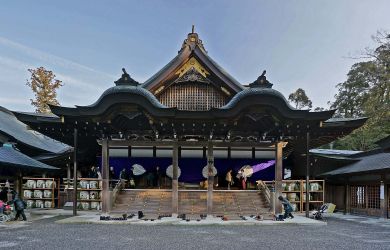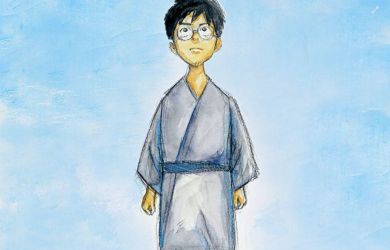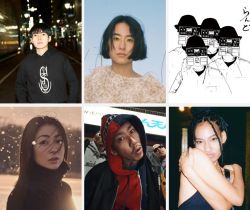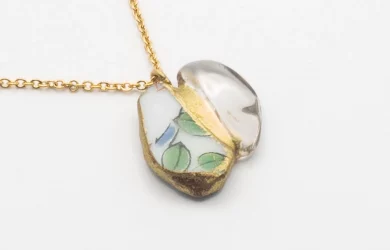
August 18, 2017
Interview: Gus Lobban of Kero Kero Bonito
One-third of British pop act shares musical influences ahead of Summer Sonic
The Rainbow Stage at the Summer Sonic Festival features almost entirely big-name J-pop acts over the music gatherings two days in Chiba’s Makuhari Messe. Yet one act sharing the bill with dozens-strong idol group Keyakizaka46 and throwback Eurobeat unit TRF stands out. Kero Kero Bonito, a trio featuring Sarah Midori Perry, Jamie Bulled and Gus Lobban, hail from London and skip between hip-hop, dance sounds and more. Although Perry often sings in Japanese, she also hop-scotches back to English, delivering vocals about life in a small English town, imagining the life of a goldfish or getting up to face the day. It’s not what you imagine as Oricon chart bait.
Yet Kero Kero Bonito’s fun-house pop owes a lot to sounds from Japan. Since forming in 2011, dashes of J-pop influence surface in their high-energy numbers, ranging from catchy melodies nodding to producer Yasutaka Nakata (Perfume, Kyary Pamyu Pamyu) to a playful rap style bringing to mind turn-of-the-century goofballs Halcali. The members have deep connections to the country’s music: Perry grew up near Nagoya until age 13, while Bulled and Lobban were fans of Japanese pop culture at a time when access to anime, video games and more was just taking off. Think of Kero Kero Bonito’s bilingual blasts of joy as an especially great end result of 1990s soft power inroads.
Last month, their 2016 album Bonito Generation received a special re-release in Japan via Sony Music, complete with bonus songs (see above). It’s a first step in making a deeper impression on this market, with the next step being their performance on Saturday afternoon at Summer Sonic. Though, if you can’t catch them then, you’ll have the chance to see them again on Tuesday, August 22 at Daikanyama’s Space Odd at 7 p.m. for free (or, for a hardcore fan, head to house-turned-DJ-space Shibuhouse on Friday to catch Lobban’s solo dance project Kane West).
Ahead of their Japan dates, Metropolis caught up with Lubban to find out what Japanese songs had the biggest influence on Bonito Generation.
m-flo — “How Do You Like Me Now?” (2001)
LUBBAN: “We listened to early m-flo a lot while we were making Bonito Generation. That whole late ’90s/early ’00s pop aesthetic informed us a ton because it represents an ideal our generation still strives for, and priorities were undeniably different back then – the rap interplay on ‘How You Like Me Now?’ is really clever and the little production touches are subtle and gorgeous. LISA’s a very interesting singer from our perspective too; she’s Japanese-American-African-Columbian and her hooks often mix up English and Japanese lyrics.”
CINDY “Destiny” (1990)
LUBBAN: “CINDY was an insanely underrated singer-songwriter-producer who wrote some of Miho Nakayama’s biggest hits and tragically died of cancer in 2001. She had it all: her voice is amazing, her songwriting is lush and her productions groove hard. “Destiny” is from her second solo album Angel Touch and it uses new jack swing as a basis for her delicate arrangements. The combination of pop craftsmanship and undeniable rhythm is close to what we strive for, and needless to say we have a great affinity for the General MIDI scratch fx.”
Pa’s Lam System “Like A Lady” (2014)
LUBBAN: “We love [Japanese online-only label] Maltine Records, and we got to play with some of the crew when they came to London in 2015. Like us, they present a utopian vision for ambitious pop music motivated by our own passions rather than pure sensible capitalism. It’s interesting that we’d have such similar aims given that we’re nearly 6000 miles apart. The unbelievably high production values of Pa’s Lam System’s accelerated laser rave symphonies – which are more authentically DIY in this decade than any guitar band – inspired us to up our game for songs like ‘Trampoline.’”





